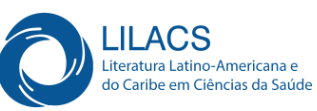Inteligencia emocional: una revisión de la literatura internacional
DOI:
https://doi.org/10.5433/2236-6407.2018v9n2p78Palabras clave:
inteligencia emocional, inteligencia, revisión de la literaturaResumen
El concepto de Inteligencia Emocional (IE), entendida como la capacidad de procesar la información emocional y utilizarlos de forma adaptativa, completa veintiséis años. Dentro de este recorrido existen dudas acerca de la existencia de esta construcción, así como diferentes concepciones de la IE. El objetivo de este trabajo es examinar el escenario de investigación sobre el tema a nivel internacional, en busca de una mejor comprensión de la situación actual del desarrollo de la zona. Por lo tanto, se llevó a cabo un análisis de los artículos publicados en la base de datos PsycArticles de la American Psychological Associotian (APA) con la palabra clave inteligencia emocional que resultó en 79 estudios, de los cuales 44 cumplieron los criterios de inclusión establecidos. Todos los artículos encontrados se refieren a estudios empíricos. La mayoría de los estudios trataron de relacionar IE a otros conceptos o analizar las propiedades psicométricas de los instrumentos de medición. Una nueva investigación sobre los programas de intervención para la promoción y la evaluación de su eficacia IE se sugieren.Descargas
Citas
Blickle, G., Momm, T., Liu, Y., Witzki, A., & Steinmayr, R. (2011). Construct validation of the Test of Emotional Intelligence (TEMINT): A two-study investigation. European Journal of Psychological Assessment, 27(4), 282-289. doi:10.1027/1015-5759/a000075
Cardoso, C., Ellenbogen, M. A., & Linnen, A. M. (2014). The effect of intranasal oxytocin on perceiving and understanding emotion on the Mayer-Salovey-Caruso Emotional Intelligence Test (MSCEIT). Emotion, 14(1), 43-50. doi:10.1037/a0034314
Cheung, F. Y., & Tang, C. S. (2012). The effect of emotional dissonance and emotional intelligence on work-family interference. Canadian Journal of Behavioural Science, 44(1), 50-58. doi:10.1037/a0025798
Cho, S., Drasgow, F., & Cao, M. (2015). An Investigation of Emotional Intelligence Measures Using Item Response Theory. Psychological Assessment, 27(4), 1241-52. doi:10.1037/pas0000132
Chong, W. H., & Chan, C. S. Y. (2015). The mediating role of self-talk between parenting styles and emotional intelligence: An Asian perspective with Singaporean adolescents. International Perspectives in Psychology: Research, Practice, Consultation, 4(3), 195-208. doi:10.1037/ipp0000034
Chrobot-Mason, D., & Leslie, J. B. (2012). The role of multicultural competence and emotional intelligence in managing diversity. The Psychologist-Manager Journal, 15(4), 219-236. doi:10.1080/10887156.2012.730442
Cohen, R. J., Swerdlik, M. E., & Sturman, E. D. (2014). Testagem e avaliação psicológica: introdução a testes e medidas. Porto Alegre, RS: Artmed.
Conselho Federal de Psicologia (2012). Resolução CFP nº 005: Altera a Resolução CFP n.º 002/2003, que define e regulamenta o uso, a elaboração e a comercialização de testes psicológicos. Brasília-DF: Autor.
Copestake, S., Gray, N. S., & Snowden, R. J. (2013). Emotional intelligence and psychopathy: A comparison of trait and ability measures. Emotion, 13(4), 691-702. doi:10.1037/a0031746
Crowne, K. A. (2013). An empirical analysis of three intelligences. Canadian Journal of Behavioural Science, 45(2), 105-114. doi:10.1037/a0029110
Dafeeah, E. E., Eltohami, A. A., & Ghuloum, S. (2015). Emotional intelligence and attitudes toward HIV/AIDS patients among healthcare professionals in the State of Qatar. International Perspectives in Psychology: Research, Practice, Consultation, 4(1), 19-36. doi:10.1037/ipp0000024
Davis, S. K., & Humphrey, N. (2014). Ability versus trait emotional intelligence: dual influences on adolescent psychological adaptation. Journal of Individual Differences, 35(1), 54-62. doi:10.1027/1614-0001/a000127
Del Valle, I. D. & Castillo, M. A. S. (2010). Inteligencia Emocional: Una revisión del concepto y líneas de investigación. Cuadernos de Estudios Empresariales, 20, 107-126. Disponível em http://revistas.ucm.es/index.php/CESE/article/view/38963/37595
Elfenbein, H. A., Barsade, S. G., & Eisenkraft, N. (2015). The social perception of emotional abilities: Expanding what we know about observer ratings of emotional intelligence. Emotion, 15(1), 17-34. doi:10.1037/a0038436
Ermer, E., Kahn, R. E., Salovey, P., & Kiehl, K. A. (2012). Emotional intelligence in incarcerated men with psychopathic traits. Journal of Personality and Social Psychology, 103(1), 194-204. doi:10.1037/a0027328
Farh, C. I. C. C., Seo, M., & Tesluk, P. E. (2012). Emotional intelligence, teamwork effectiveness, and job performance: The moderating role of job context. Journal of Applied Psychology, 97(4), 890-900. doi:10.1037/a0027377
Fernández-Berrocal, P., Berrios-Martos, M. P., Extremera, N., & Augusto, J. M. (2012). Inteligencia Emocional: 22 años de avances empíricos. Psicología Conductual, 20(1), 5-13.
Ford, B. Q., & Tamir, M. (2012). When getting angry is smart: Emotional preferences and emotional intelligence. Emotion, 12(4), 685-689. doi:10.1037/a0027149
Gaher, R. M., Simons, J. S., Hahn, A. M., Hofman, N. L., Hansen, J., & Buchkoski, J. (2014). An experience sampling study of PTSD and alcohol-related problems. Psychology of Addictive Behaviors, 28(4), 1013-1025. doi:10.1037/a0037257
Goleman, D. (1995). Emotional intelligence. New York, NY: Bantam Books.
Gonzaga, A. R., & Monteiro, J. K. (2011). Inteligência Emocional no Brasil: Um panorama da pesquisa científica. Psicologia: Teoria e Pesquisa, 27(2), 225-232. doi:10.1590/S0102-37722011000200013.
Gregory, J. B., & Levy, P. E. (2011). It's not me, it's you: A multilevel examination of variables that impact employee coaching relationships. Consulting Psychology Journal: Practice and Research, 63(2), 67-88. doi:10.1037/a0024152
Harris, D. J., Reiter-Palmon, R., & Kaufman, J. C. (2013). The effect of emotional intelligence and task type on malevolent creativity. Psychology of Aesthetics, Creativity, and the Arts, 7(3), 237-244. doi:10.1037/a0032139
Hoerger, M., Chapman, B. P., Epstein, R. M., & Duberstein, P. R. (2012). Emotional intelligence: A theoretical framework for individual differences in affective forecasting. Emotion, 12(4), 716-725. doi:10.1037/a0026724
Iliescu, D., Ilie, A., Ispas, D., & Ion, A. (2013). Examining the psychometric properties of the Mayer-Salovey-Caruso Emotional Intelligence Test: Findings from an Eastern European culture. European Journal of Psychological Assessment, 29(2), 121-128. doi:10.1027/1015-5759/a000132
Keefer, K. V., Holden, R. R., & Parker, J. D. A. (2013). Longitudinal assessment of trait emotional intelligence: Measurement invariance and construct continuity from late childhood to adolescence. Psychological Assessment, 25(4), 1255-1272. doi:10.1037/a0033903
Kotsou, I., Nelis, D., Grégoire, J., & Mikolajczak, M. (2011). Emotional plasticity: Conditions and effects of improving emotional competence in adulthood. Journal of Applied Psychology, 96(4), 827-839. doi:10.1037/a0023047
Koven, N. S. (2011). Specificity of meta-emotion effects on moral decision-making. Emotion, 11(5), 1255-1261. doi:10.1037/a0025616
Koven, N. S., & Demers, L. A. (2014). Discordant peripheral levels of brain-derived neurotrophic factor and serotonin are associated with enhanced emotional intelligence in men. Psychology & Neuroscience, 7(4), 609-618. doi:10.3922/j.psns.2014.4.21
Kross, E., & Grossmann, I. (2012). Boosting wisdom: Distance from the self enhances wise reasoning, attitudes, and behavior. Journal of Experimental Psychology: General, 141(1), 43-48. doi:10.1037/a0024158
Kun, B., Urbán, R., Paksi, B., Csóbor, L. V., Oláh, A., & Demetrovics, Z. (2012). Psychometric characteristics of the Emotional Quotient Inventory, Youth Version, Short Form, in Hungarian high school students. Psychological Assessment, 24(2), 518-523. doi:10.1037/a0026013
Libbrecht, N., Lievens, F., Carette, B., & Côté, S. (2014). Emotional intelligence predicts success in medical school. Emotion, 14(1), 64-73. doi:10.1037/a0034392
Lievens, F., Klehe, U., & Libbrecht, N. (2011). Applicant versus employee scores on self-report emotional intelligence measures. Journal of Personnel Psychology, 10(2), 2011, 89-95. doi:10.1027/1866-5888/a000036
Lomas, T., Edginton, T., Cartwright, T., & Ridge, D. (2014). Men developing emotional intelligence through meditation? Integrating narrative, cognitive and electroencephalography (EEG) evidence. Psychology of Men & Masculinity, 15(2), 213-224. doi:10.1037/a0032191
MacCann, C., Joseph, D. L., Newman, D. A., & Roberts, R. D. (2014). Emotional intelligence is a second-stratum factor of intelligence: Evidence from hierarchical and bifactor models. Emotion, 14(2), 358-374. doi:10.1037/a0034755
Martskvishvili, K., Arutinov, L., & Mestvirishvili, M. (2013). A psychometric investigation of the Georgian version of the Trait Emotional Intelligence Questionnaire. European Journal of Psychological Assessment, 29(2), 84-88. doi:10.1027/1015-5759/a000135
Mayer, J. D., Caruso, D. V., & Salovey, P. (2001). Emotional Intelligence meets traditional standards for an intelligence. Intelligence, 27(4), 267-298. doi:10.1016/S0160-2896(99)00016-1
Mayer, J. D., Salovey, P., & Caruso, D. (2002). Mayer-Savoley-Caruso Emotional Intelligence Test. Toronto, CA: Multi-Health Systems.
Mayer, J. D., Roberts, S. D., & Barsade, S. D. (2008). Human abilities: Emotional Intelligence. Annual Review of Psychology, 59, 507-536. doi:10.1146/annurev.psych.59.103006.093646
McGrew, K. S. (2009). CHC theory and the human cognitive abilities project: Standing on the shoulders of the giants of psychometrics. Intelligence, 37, 1-10. doi:10.1016/j.intell.2008.08.004
Mikolajczak, M., Avalosse, H. Vancorenland, S., Verniest, R. Callens, M., Broeck, N. V., Fantini-Hauwel, C., & Mierop., A. (2015). A nationally representative study of emotional competence and health. Emotion, 15(5), 653-667. doi:10.1037/emo0000034
Nozaki, Y. (2015). Emotional Competence and Extrinsic Emotion Regulation Directed Toward an Ostracized Person. Emotion, 15(6), 763-774. doi:10.1037/emo0000081
Parke, M. E., Seo, M., & Sherf, E. N. (2015). Regulating and facilitating: The role of emotional intelligence in maintaining and using positive affect for creativity. Journal of Applied Psychology, 100(3), 917-934. doi:10.1037/a0038452
Parker, J. D. A., Keefer, K. V., & Wood, L. M. (2011). Toward a brief multidimensional assessment of emotional intelligence: Psychometric properties of the Emotional Quotient Inventory-Short Form. Psychological Assessment, 23(3), 762-777. doi:10.1037/a0023289
Petrides, K. V., & Furnham, A. (2004). Technical manual of the Trait Emotional Intelligence Questionnaire (TEIQue). London: University of London, Institute of Education.
Piñar-Chelso, M. J., & Fernández-Castro, J. (2011). A new scale to evaluate disruptive passenger management by cabin crew: Implications for crew resource management and quality of service. Aviation Psychology and Applied Human Factors, 1(1), 21-30. doi:10.1027/2192-0923/a00009
Primi, R. (2003). Inteligência: Avanços nos modelos teóricos e nos instrumentos de medida. Avaliação Psicológica, 1, 67-77. Disponível em http://pepsic.bvsalud.org/scielo.php?script=sci_arttext&pid=S1677-04712003000100008&lng=pt&nrm=iso
Rieck, T., & Callahan, J. L. (2013). Emotional intelligence and psychotherapy outcomes in the training clinic. Training and Education in Professional Psychology, 7(1), 42-52. doi:10.1037/a0031659
Rieck, T., Callahan, J. L., & Watkins Jr, E. (2015). Clinical supervision: An exploration of possible mechanisms of action. Training and Education in Professional Psychology, 9(2), 187-194. doi:10.1037/tep0000080
Rieck, T., Hausdorf, P., & Callahan, J, L. (2015). The role of emotional intelligence in peer instructional dyads. Scholarship of Teaching and Learning in Psychology, 1(1), 24-37. doi:10.1037/stl0000018
Roberts, R. D., Flores-Mendoza, C. E., & Nascimento, E. (2002). Inteligência Emocional: Um construto científico? Paidéia, 12(23), 77-9. doi:10.1590/S0103-863X2002000200006
Robinson, M. D., Moeller, S. K., Buchholz, M. M., Boyd, R. L., & Troop-Gordon, W. (2012). The regulatory benefits of high levels of affect perception accuracy: A process analysis of reactions to stressors in daily life. Emotion, 12(4), 785-795. doi:10.1037/stl0000018
Salovey, P., & Mayer, J. D. (1990). Emotional intelligence. Imagination, Cognition and Personality, 9(3), 185-211. doi:10.2190/DUGG-P24E-52WK-6CDG
Salovey, P., Mayer, J. D., Goldman, S. L., Turvey, C., & Palfal, T. P. (1995). Emotional attention, clarity and repair: Exploring emotional intelligence using the trait meta-mood scale. In J. W. Pennebaker (Ed.), Emotion, disclosure, and health (pp. 125-154). Washington, DC: American Psychological Association. doi:10.1037/10182-006
Salthouse, T. A. (1998). Independence of age-related influences on cognitive abilities across the life span. Developmental Psychology, 34, 851-864. http://dx.doi.org.ez31.periodicos.capes.gov.br/10.1037/0012-1649.34.5.851
Salthouse, T. A. (2004). Localizing age-related individual differences in a hierarchical structure. Intelligence, 32, 541-561. doi:10.1016/j.intell.2004.07.003
Schneider, W. J., & McGrew, K. (2012). The Cattell-Horn-Carroll model of intelligence. In, D. Flanagan & P. Harrison (Eds.), Contemporary Intellectual Assessment: Theories, Tests, and Issues (3rd ed., p. 99-144). New York, NY: Guilford.
Schutte, N. S., Malouff, J. M., Hall, L. E., Haggerty, D. J., Cooper, J. T., Golden, C. J., & Dornheim, L. (1998). Development and validation of a measure of emotional intelligence. Personality and Individual Differences, 25, 167-177. doi:10.1016/S0191-8869(98)00001-4
Sheldon, O. J., Dunning, D., & Ames, D. R. (2014). Emotionally unskilled, unaware, and uninterested in learning more: Reactions to feedback about deficits in emotional intelligence. Journal of Applied Psychology, 99(1), 125-137. doi:10.1037/a0034138
Siegling, A. B., Vesely, A. K., Saklofske, D. H., Frederickson, N., & Petrides, K. V. (2015). Incremental Validity of the Trait Emotional Intelligence Questionnaire-Adolescent Short Form (TEIQue-ASF). European Journal of Psychological Assessment, 97, 525-535. Advance online publication. doi:10.1027/1015-5759/a000267
Siu, A. F. Y. (2009). Trait emotional intelligence and its relationships with problem behavior in Hong Kong adolescents. Personality and Individual Differences, 47, 553-557. doi:10.1016/j.paid.2009.05.004
Veirman, E., Brouwers, S. A., & Fontaine, J. R. J. (2011). The assessment of emotional awareness in children: Validation of the Levels of Emotional Awareness Scale for Children. European Journal of Psychological Assessment, 27(4), 265-273. doi:10.1027/1015-5759/a000073
Wagstaff, C. R. D., Fletcher, D., & Hanton, S. (2012). Exploring emotion abilities and regulation strategies in sport organizations. Sport, Exercise, and Performance Psychology, 1(4), 268-282. doi:10.1037/a0028814
Wong, C. S., & Law, K. S. (2002). The effects of leader and follower emotional intelligence on performance and attitude: An exploratory study. The Leadership Quarterly, 13, 243-274. http://dx.doi.org/10.1016/S1048-9843(02)00099-1
Woyciekoski, C., & Hutz, C. S. (2009). Inteligência Emocional: Teoria, pesquisa, medida, aplicações e controvérsias. Psicologia: Reflexão e Crítica, 22(1), 1-11. doi:10.1590/S0102-79722009000100002
Zeidner, M., Kloda, I., & Matthews, G. (2013). Does dyadic coping mediate the relationship between emotional intelligence (EI) and marital quality? Journal of Family Psychology, 27(5), 795-805. doi:10.1037/a0034009
Descargas
Publicado
Cómo citar
Número
Sección
Licencia
Derechos de autor 2018 Estudos Interdisciplinares em Psicologia

Esta obra está bajo una licencia internacional Creative Commons Atribución 4.0.
Estudos interdisciplinares em Psicologia adota a licença CC-BY, esta licença permite que os reutilizadores distribuam, remixem, adaptem e criem a partir do material em qualquer meio ou formato, desde que a atribuição seja dada ao criador. A licença permite o uso comercial.
Este obra está licenciado com uma Licença Attribution 4.0 International (CC BY 4.0)




















